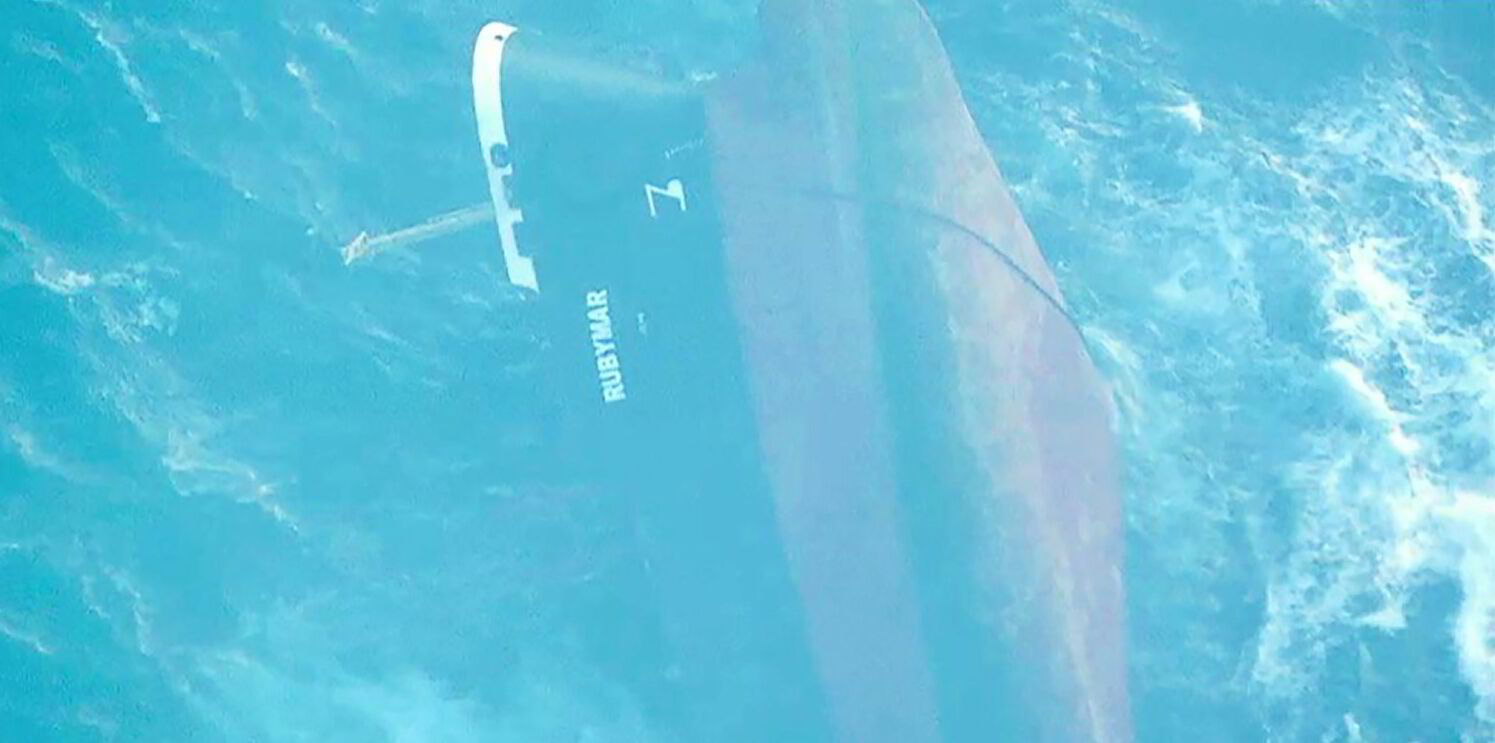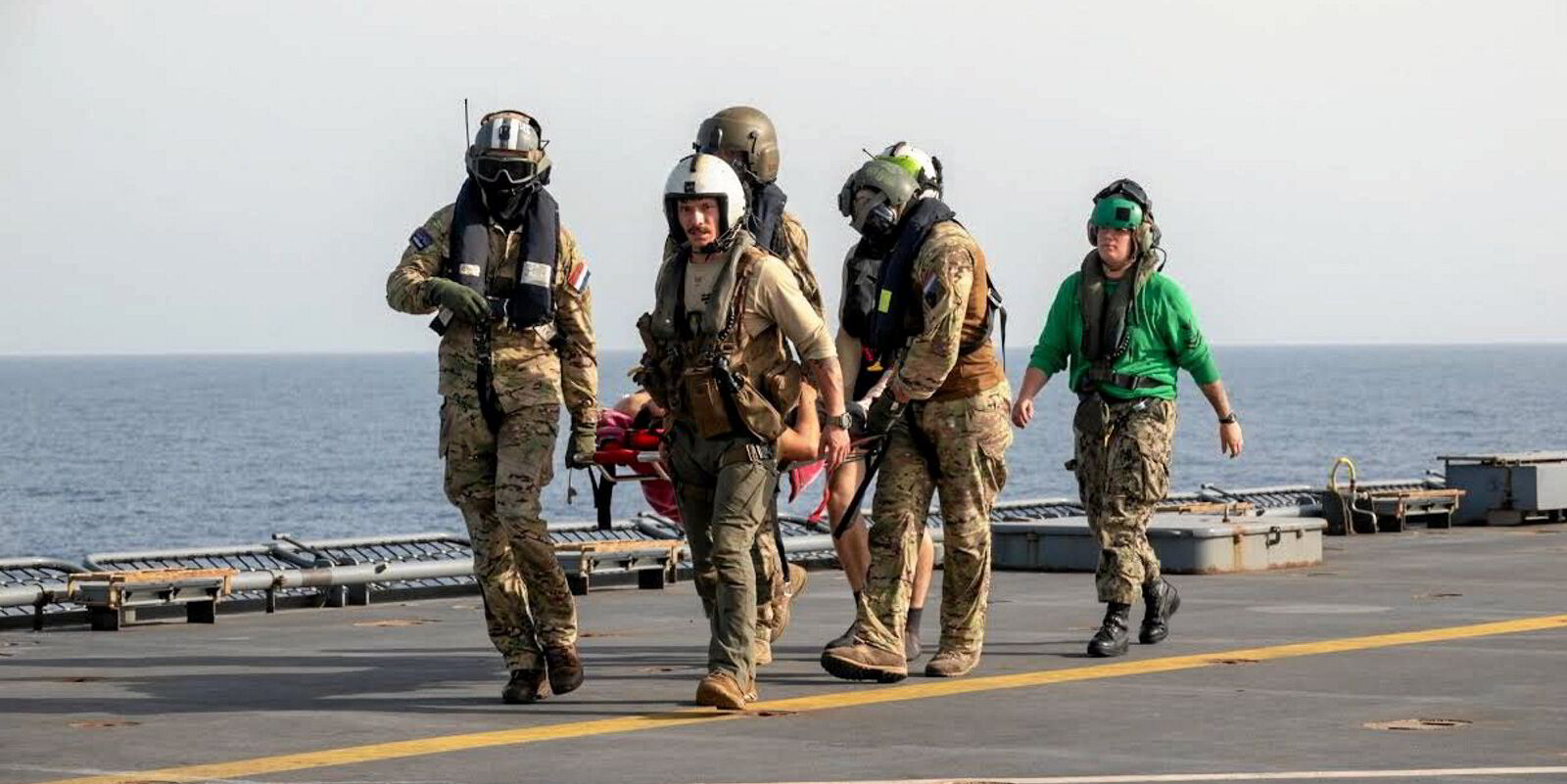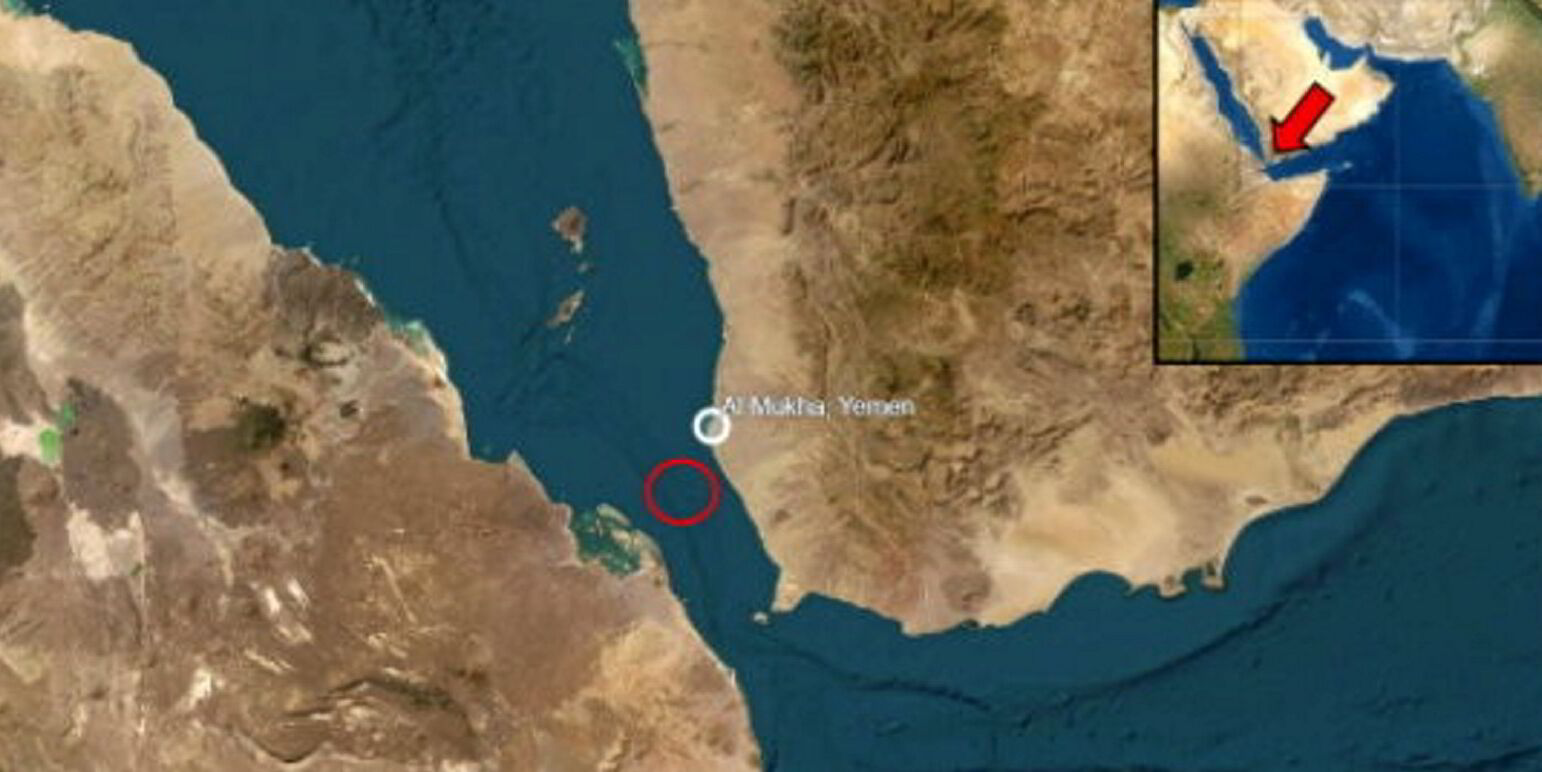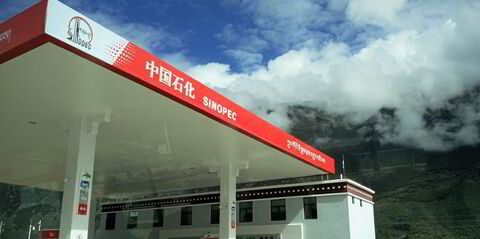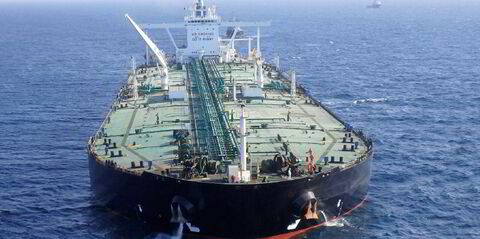The International Maritime Organization has launched an appeal for a remotely operated vehicle and other kit to prepare for a pollution spill from a bulker sunk in a Houthi attack off Yemen.
The 32,000-dwt Rubymar (built 1997) was hit by two missiles fired by the rebel group on 18 February and left a 29 km slick before it sank nearly two weeks later.
The ship had 22,000 tonnes of fertiliser, 200 tonnes of heavy fuel oil and 80 tonnes of marine diesel on board.
The ship is partially submerged with the remaining bunker fuel and cargo posing a “significant environmental threat” to Yemen, particularly the biologically rich Hanish Islands in the southern Red Sea, said the IMO.
In a circular, it stated that the appeal was made “recognising the lack of specialised oil spill response equipment within the country to respond to a possible leak” from the Rubymar.
The list of items needed was supplied by the internationally recognised government of Yemen based in the southern port city of Aden. The islands had been a strategic prize during years of civil war between the Iran-backed Houthis and the Aden-based government backed by the Saudis.
The Rubymar, managed by Lebanon-based GMZ Ship Management, was the first of two ships sunk by the Houthis during missile and drone attacks on dozens of vessels since November last year.
The ship went down in waters 100 metres deep and salvors have been reluctant to enter the area because of the continued threat from Houthi attacks.
Thomas Miller Specialty supplied the Rubymar’s fixed premium protection and indemnity insurance cover since 24 July 2023, under the owner Golden Adventure Shipping.
But it is believed that the cover did not include the war risk element that would be needed for a pollution payout under P&I policies.
It is understood that the shipowner had cargo war insurance for its cargo interests. GMZ Ship Management could not immediately be reached for comment.

Read more
- Houthi rebels sink second ship in unrelenting Red Sea campaign
- Crew abandons burning Ukrainian bulker said to be ‘sinking’ after Gulf of Aden missile strike
- Tutor salvage operation still on after crew abandons ship in the Red Sea
- Evalend bulker abandoned as crew evacuated after Houthis’ fatal attack
- Seafarer severely injured in blaze after Houthis target three ships
